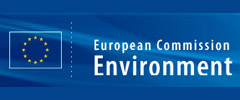Commission's EDC criteria proposal: More humans will have to be harmed before action is taken
The European Commission presented today its proposal for criteria to identify endocrine disrupting chemicals (EDCs). WECF and the EDCfree Coalition condemn strongly the decision.
15.06.2016 |

Wednesday, 15 June 2016
EDC-Free Europe reaction on
Commission's EDC criteria proposal: More humans will have to be harmed before action is taken
The EDC-Free Europe coalition is astounded at and strongly condemns today`s Commission proposal for criteria to identify endocrine disrupting chemicals (EDCs).
The Commission proposed to identify EDCs based on an unprecedentedly high level of proof. This proposal requires such a high amount of evidence that it will be nearly impossible to identify more than a small fraction of substances posing a threat to human health and the environment from hormone disruption. The health costs of diseases associated with exposure to endocrine disrupting chemicals, including infertility and male reproductive dysfunctions, female reproductive problems (endometriosis and uterine fibroids), birth defects, obesity, diabetes, cardiovascular disease, and neurobehavioral and learning disorders, have been estimated at 158.4 billion Euros per year in the EU.
Moreover, the Commission ignored that:
- This approach is inconsistent and incoherent with the current, well established, and successful approach to identifying and ranking carcinogens, mutagens and chemicals toxic to reproduction according to the level of evidence;
- The majority of respondents to the Commission`s public consultation supported to use multiple ranking categories (option 3) to effectively use the science to protect human health;
- The leading scientists recommended option 3 as the right option because it
- takes up the latest science and new emerging research, and;
- enables the regulation to protect pregnant women, babies and children.
Potential EDCs will not be captured – “MAY” cause adverse effects deleted
The proposal further undermines the current biocides and pesticide legislation by ignoring a key aspect – “potential” EDCs. The current law covers hormone disrupters which ` may cause adverse effects [in humans or animals]´. This shows the clear intention of the entire EU Parliament and Council to regulate not only definite but also strongly suspected EDCs. However, the Commission proposal gets rid of this wording in the proposed changes to the pesticide law. Furthermore, the Commission proposes only one category, and sets restrictive conditions on the evidence which means that humans will most likely (continue to) be harmed before action is taken. This is not only a glaring departure from the EU precautionary approach both enshrined in the EU Treaties and carefully and intentionally built into the biocide and pesticides laws, it is simply not an acceptable level of protection.
Sneaky: Changing negligible EXPOSURE to negligible RISK
Moreover, in a move that is potentially illegal the Commission goes beyond identification criteria to propose widening an existing exemption in the Pesticides law into a major loophole for those cases where chemicals have been identified as EDCs (changing `negligible exposure’ to ‘negligible risk´).
We urgently call on the Member States to insist on major changes because these proposals will do nothing to protect human health and environment from further harm but instead allows the pesticide and chemical industries to continue using harmful substances to which we are all daily exposed.
You can download the official statement of the EDCfree Coalition here as a PDF.

#edcfree Tweets

































